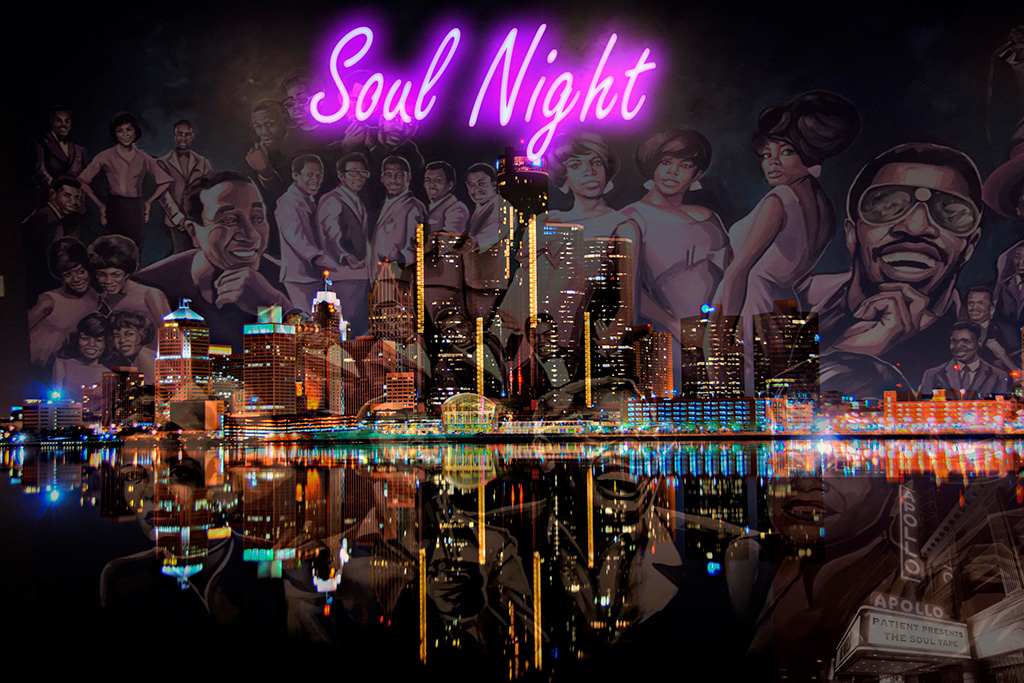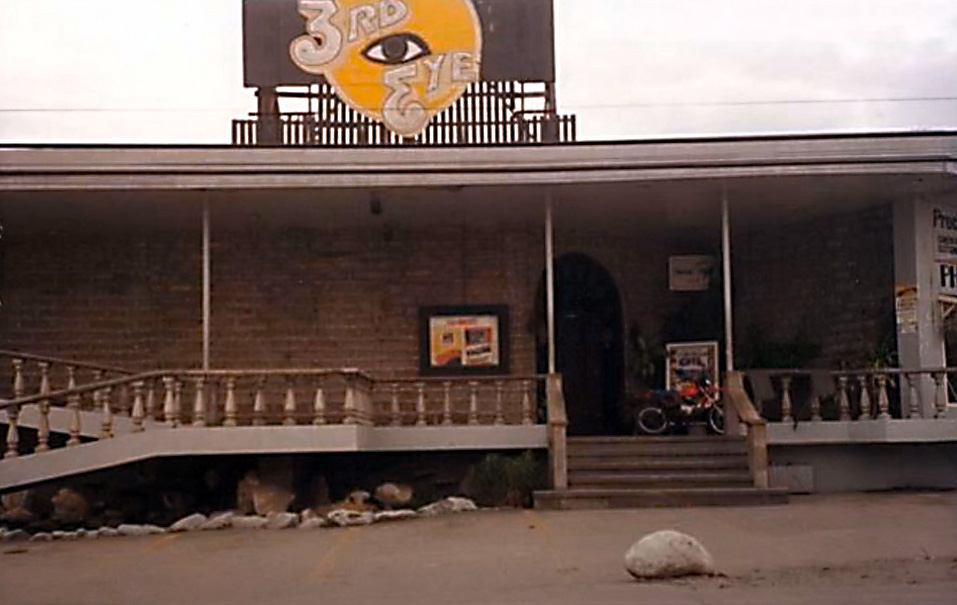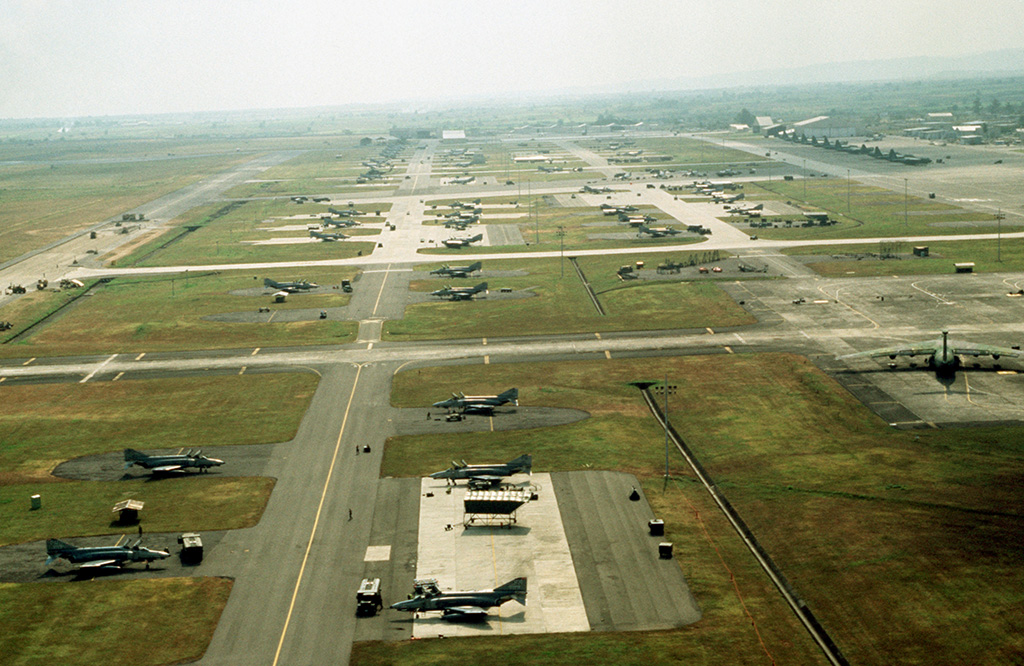THE GAFFA TAPES
29 Nov 2022
The Gaffa Tapes: SOUL NIGHT

Subscribe to CX E-News
Snippets from the archives of a bygone era
Soul Night was my spiritual redemption after a previous disastrous nightclub promotion that failed to attract a single patron somewhat tarnished my credentials as an entertainment manager. The previous fizzer, which was entitled Saturday Date (a name I borrowed from a 60s Australian TV show) was supposed to attract teenagers to an alcohol-free Saturday afternoon disco at the Third Eye nightclub located just off the US Air Force base in the Philippines.
For the event I had special alcohol-free drinks designed, which were copies of existing cocktails with the names changed: Virgin Daiquiri became a Madonna, named after the singer’s hit record ‘Like a Virgin’. The alcohol- free coconut cream Piña Colada was renamed White Wedding after Billy Idol’s hit, and there was also a non-alcoholic Bloody Mary, which I named Thriller after Michael Jackson’s hit album.

The Third Eye nightclub had a Promotions Manager who didn’t like my intrusion into his area of expertise. He had successful sexualised promotions with a Wet T-shirt competition, Foxy Boxing, and Oil Wrestling.
Ferdinand and Imelda Marcos had banned mud wrestling, citing it as distasteful to have scantily clad girls wrestling in mud, so the Promotions Manager used the workaround of having the girls wrestle in Baguio Oil, which was the country’s premier cooking oil.
After my failed Saturday Date promotion, it was explained to me that parents of both Filipino and US ‘base brats’ did everything humanly possible to keep their kids away from the club mainly because it was patronised by hard-drinking GIs who ogled the bikini-clad dancing girls and attended the sordid promotions. How could I have misjudged that one?
In spite of the Promotions Manager’s successful promotions, he also had a fizzer on his hands. This was Rock and Soul Night, a counterintuitive endeavour aimed at attracting a contingent of black Americans, who made up some 20 percent of US forces. But it was a farce: GIs were told they could bring their own music, but the white guys who attended tried to turn it into some sort of competition, and the black GI community shunned the event.
My first engagement working in a nightclub patronised by US servicemen was two years earlier at Rosie O’ Grady’s in 1983. We closely followed the Billboard charts to keep the music up to date. Billboard shuffled most black music into its Billboard R&B Top 40, which was kept separate from the regular Billboard Top 40. Coming from a more homogenised music scene in Australia, I was taken aback how the US segregated its music in this way.
I was given a salary package, which included hotel accommodation and free food at a soul food cafe called D’Bus Stop. I was told to go and introduce myself to Porkchops Johnson, who was the owner.
“What do I call him? I can’t just call him Porkchops.”
“That’s what everybody calls him,” I was told.
Porkchops Johnson was a huge black man who taught me all about soul food. I’d only heard about grits and chitlins from the Beverly Hillbillies, and they were white. Grits is porridge made from boiled cornmeal, and chitlins are the large intestines of swine (hogs) usually fried. Whilst I tried grits and chitlins a few times I mostly dined on spare ribs, fried chicken, and collard greens. Porkchops had a jukebox filled with soul and a big chunk of the black music that I loved. Porkchop’s beautiful little 5-year- old daughter would sometimes come out and dance to the tunes on the jukebox.

I soon had an axe to grind at Rosie O’ Grady’s when I questioned why the black community didn’t come into the venue.
“Oh it’s not their kind of music,” I was told. But I regulated the music at the venue.
I had grown up loving the Tamla Motown sounds of The Supremes, Marvin Gaye, and Billy Preston et cetera, along with other non-Motown artists like Sam Cooke, James Brown, Otis Redding, and Aretha Franklin. So the comment stuck in my craw. There were venues around town dedicated to the black community that played soul music, but most of these places were dingy dives poorly run by expatriate US retired military personnel.
At the Third Eye I saw an opportunity to present black music the way I remembered it, and I wanted to take over the failed Rock and Soul promotion. The Promotions Manager lobbied that I should stick to my existing duties, which were more aimed at the sound and lighting installation, booking the bands, mixing audio, training the audio engineers, and liaising with the DJs. But much to his chagrin the failing Rock and Soul Night was given over to me, which I changed to Soul Night. Initially, I also rolled in reggae music adding a splashing of Bob Marley and Peter Tosh, but I was soon to learn that Americans knew little about reggae, and this was phased out.
We head-hunted Fast Eddie, a black DJ who was pulling big numbers at the Clark Air Base disco, and we paid him handsomely to host our Soul Night. He was enamoured to be given full reign in our nightclub, which was the number one nightclub in town. So he promoted the event to the hilt, so much so that on opening night an outstanding black USO touring band turned up to play live on our stage, and I had the privilege of mixing them. It was one of the highlights of my entire career.
Fast Eddy worked in with our existing DJs whom he gave street names to like Cast-a- Spell-Joel and DJ Danny. Few people are aware today that rap was breaking in the mid 80s, so Fast Eddy also introduced a slice of rap into the repertoire.
Soul Night was always packed to the rafters, and a real eye-opener as patrons would come in dressed to the nines with a big contingent of the men in three-piece suits and accessorised with everything from ostentatious jewellery to sunglasses. And it was common for women to be garbed in classy evening gowns, which added a touch of elegance to the venue. Soul Night became one of the most successful events on the club’s calendar, with the exception of the tacky Wet T-shirt promotion.
The guys largely drank rum and coke, so we featured this drink very inexpensively; it was a kind of loss leader that helped bring in the huge crowds. Most of my invented teen drinks faded into obscurity except for the Madonna, which was a big hit with the girls on Soul Night.
Ironically, you could say that I also contributed to a kind of segregated event, but the event was open to everyone and more a tribute to black music and artists, and not meant to divide communities. However, I realised that I wasn’t going to change years of prejudice that unfortunately was instilled in American culture overnight.
Subscribe
Published monthly since 1991, our famous AV industry magazine is free for download or pay for print. Subscribers also receive CX News, our free weekly email with the latest industry news and jobs.






